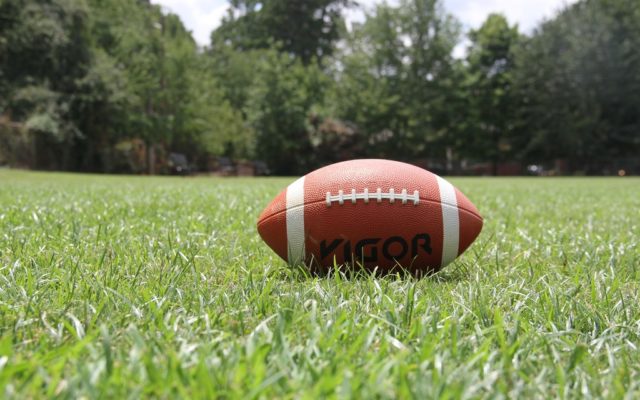
Officials prepare for the possibility of a fall sports season in Maine
Will there be enough game officials to cover all of Maine’s interscholastic sports events this fall, if and when they are played?
Surprisingly the answer may be yes, at least during the COVID-19 pandemic of 2020.
Recruitment of new referees to fill shortages in virtually every high school sport was a primary reason the Maine Principals’ Association created the position of commissioner of officials in 2019, and generally speaking the issue remains.
The average age of a board-certified official in Maine is 54, according to the person that took on that challenge, longtime multisport official Jeff Benson of Auburn.
And while he’ll gladly welcome new candidates to officiate any of the sports offered through the MPA throughout the school year, Benson said the reduced number of games likely to be played if schools get the final go-ahead to play fall sports combined with results from a recent survey of current officials leaves him optimistic in the quantity of the existing officiating pool.
“If they’re reducing the number of games we should not be affected shortage-wise because I really don’t know how many subvarsity games are going to be played. We’re only looking at the varsity schedules at this point in time,” Benson said.
Benson surveyed fall sports officials around the state in July, with nearly 65 percent of the approximately 700 officials from Maine’s high school football, soccer, field hockey and volleyball boards responding.
Seventy percent of those respondents said they would be comfortable working while wearing a mask if necessary, Benson said, knowing they also would be using a push-button electronic whistle to replace the traditional breath-inspired models — though the electronic versions are reportedly in short supply.
Benson said the responding officials had two major concerns, the possibility of spreading a virus to players they were officiating and what kind of testing would be available for them if there is no vaccine available, as currently is the case.
“Thinking that the state would say this is what you’ve got to do in order to work, we did the survey under the premise that we knew we maybe would have to wear a mask and maybe we would have to wear gloves and do pre-screening of your own health before you go to a game,” Benson said. “Then you’d contact the host school if you’re weren’t coming today because you had a fever or you’d say, ‘I’m OK to come, here we go.’”
According to MPA fall sports recommendations now under state review, officials must wear face coverings at all times while in the gymnasium for volleyball, the only indoor offering among the MPA’s fall sports. They are encouraged to wear masks while working games in other sports, a prospect that may be further enhanced by the availability of electronic whistles.
“We also encourage them that if they’re going to ride to a game with a fellow official to wear a mask unless they’re with a family member,” Benson said. “We know the schedules will be regional, so for each board we’re hoping it may cut down on travel for some people, and with the reduced number of games we’re hoping we can help the schools out a little [with travel expenses] as well.”
Other changes involving the officials include smaller groups at pre-game meetings, replacing handshakes among teams with a post-game wave, and particular rule changes in some sports, such as limiting the number of offensive and defensive players in the soccer penalty box on corner kicks or throw-ins to that area.
Benson doesn’t anticipate game officials having additional duties related to COVID-related safety.
“We won’t be looking at social distancing and masking, we won’t be looking at sideline stuff, that’s for the people at their own schools to mandate.” he said. “We’re going to have enough to worry about with the kids on the field and on the courts.”
Benson acknowledges some officials may sit out the fall sports season with health concerns involving themselves or their loved ones.
“We know that is a possibility,” he said. “I wish I could say we’re going to have 100 percent participation but that would be best-case scenario and I know that’s not going to really be possible at this point in time.”